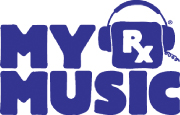
R. Serene Perkins, MD

Shaban Demirel, PhD
In a first-of-its-kind collaboration, the Children’s Cancer Association, Randall Children’s Hospital at Legacy Emanuel, and Legacy Research Institute, of Portland, Oregon, co-led a study to assess the impact of using live music as medicine on postoperative pediatric patients to reduce pain and anxiety. The study was led by R. Serene Perkins, MD, and Shaban Demirel, PhD, in partnership with Children’s Cancer Association professional staff and focused on Children’s Cancer Association’s flagship program, MyMusicRx®.
As part of the study, 32 pediatric patients between the ages of 5 and 18 were considered to receive a single live, customized music session by a MyMusicRx music specialist within 12 hours after surgery. Two groups were tested, with one being a control group that did not receive the musical intervention. At the time of the study, a live music intervention had not been examined in the pediatric postoperative setting, nor had the concept of using scientific methods to investigate transformative moments of joy in pediatric patients and their families.

“Most of the published work on the effects of music in patients involves adults,” said Dr. Perkins, Director of Surgical and Clinical Research, Legacy Research Institute. “Assessing and managing pain and anxiety in children is more difficult, which is what led us to explore the impact of music medicine in a pilot group of hospitalized children. We believe there is a critical gap in pediatric oncology research: understanding the role of integrative therapies to combat the adverse effects of stress on pediatric patients.”
The study’s findings showed a single music intervention for pediatric postoperative patients did not appear to be an adequate supplement to decrease pain over traditional methods of pain control. However, during the study, the psychological well-being, patient engagement, and family perception of the music medicine were not evaluated, allowing for promising future studies of pediatric stress management using cognitive methods. A second phase of the clinical trial is planned for April 2018 and will focus on the behavioral impact MyMusicRx has on children. ■

